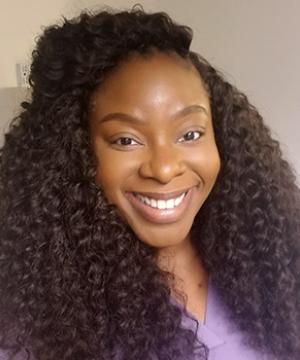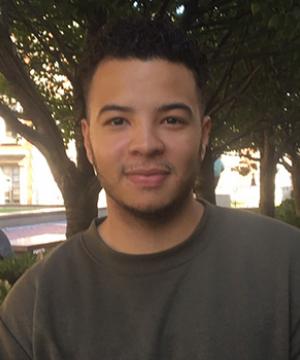Students Win Medical Treatment for Alabama Inmate
The student-run Prison Healthcare Initiative spent three years advocating for a prisoner serving a life sentence
By the end of her first day at Columbia Law School, Chijindu Obiofuma ’18 had started a student-run group that would become the Prison Healthcare Initiative (PHI).
While sitting in Professor Bernard Harcourt’s section of Legal Methods in the fall of 2015, Obiofuma listened intently as Harcourt talked on speaker phone with Phil Tomlin, a pro bono client serving a life sentence in Alabama. On the call, Tomlin, 64, mentioned that he did not feel well. “He said his eyes were yellowing and thought he had hepatitis C,” recalls Obiofuma, who simultaneously began texting questions about hepatitis to her mother who is a nurse. “He said he was in abysmal pain and that other inmates were experiencing the same things.”
Within hours after the class ended, she had found a group of students who wanted to help Tomlin, who has been in prison for 42 years. After a couple of meetings, Obiofuma had a core group of advocates: Jesse Hubbard ’18, Morenikeji (Keji) Akinade ’18, Maria LaGumina ’18, and Daniela (Ella) Stephen ’17.
In September, nearly three years later, their efforts paid off. Tomlin began receiving a drug called Epclusa in September 2018. “It felt like a godsend when Phil called and told he had just received his first treatment,” says Harcourt, who had successfully appealed his death row sentence in 2004. “He told me he was in shock.”
In a phone call from Alabama’s Holman Correctional Facility, Tomlin sounded ebullient after the first six weeks of receiving Eplcusa. “I am so thankful that PHI was able to get this for me,” he said. “To get something done here is almost miraculous.”
The students were just as surprised as their client because they knew the odds were against them. The Centers for Disease Control reports that one-third of the 2.2 million people in U.S. prisons have hepatitis C, but only 3 percent of them get treatment, according to a recent survey conducted at the Toni Stabile Center for Investigative Journalism at Columbia University’s Graduate School of Journalism.
As the PHI students navigated the Alabama prison bureaucracy, they were never certain if they were making significant headway. “It was a long road of imagining and reimagining piecemeal tactics that would ultimately get us our result,” says Obiofuma, who is now a Criminal Justice Policy Fellow at Harvard Law School.
It took PHI a full year before obtaining copies of Tomlin’s medical records. “Our strategy was to be an irritant in the side of the prison by calling every day and being as persistent as possible,” says Obiofuma. “We had intermediate victories, getting him in to see a nurse and getting him a wheelchair when he hurt his back.”
Jabari Julien ’20, who joined PHI last year and is now its president, says the number one lesson of working on behalf of Tomlin was “the effectiveness of pressure and persistence.” After finally getting the medical records, Julien, who was a pre-med student at Howard University, focused on investigating treatment options for Tomlin and passing along the information to him so he could more effectively advocate for himself. “He had to do a lot of the legwork,” says Julien.
Tomlin says he still does not know what led officials to provide him with medication. “But it had to come from an outside source, and the only outside source I had was PHI,” he says. “The students were so eager. It meant so much to me to have people to talk to who cared about me.”
Harcourt provided constant support and inspiration for the PHI students. “He lent us his name, time, resources but he also gave us the freedom to assess the problem and develop our own solutions,” says Obiofuma. “He treated us like lawyers from day one. He let us grow into our roles as advocates.”
Harcourt says he was awed by the students’ commitment. “The amount of initiative, of self-motivation, drive, and passion for justice that these students exhibited in creating this project and working on behalf of incarcerated men and women is truly admirable,” he says. “It is for me an enormous source of inspiration and hope.”
When Obiofuma heard the news that Tomlin had taken his first pill, she started crying and shaking. “I never anticipated the feeling,” she said. “I never thought it would feel that huge. I felt overcome.”
Now, under the leadership of Julien and vice president Daniel Yoon ’20, PHI—part of the Practical Engagements initiatives of the Columbia Center for Contemporary Critical Thought—is pursuing research projects on the reproductive rights of inmates and post-incarceration drug rehabilitation programs. “We’ve been mostly client-based,” says Yoon, “and now we are going to focus on policy, too.”
# # #
Related reads:
Bernard Harcourt and the State of Alabama Settle Civil Rights and Habeas Corpus Lawsuits
Students Play Vital Role in Death Row Case
Mass Incarceration Clinic Helps Free a Woman Who Spent 34 Years in Prison
“Windows on Death Row” Premieres at Columbia Law
Climate Change and Mass Incarceration
Published November 7, 2018

